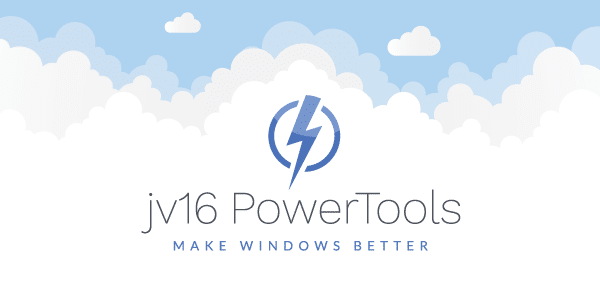The developer of RegCleaner, jv16 PowerTools, Uninstalr, WinFindr, Startup Timer, ScreenshotX, System Examiner and Windows Update Fixer.
Anti-Exploit Kit Benchmark
The current anti-exploit kit benchmark is the expression of following our customers closely and taking their recommendations seriously, no matter how out-of-the-box they might be at first sight! Why this test now?
The idea is based on a message received from one of our existing customers: “Because jv16PT is not a spyware/malware product it would not fare well – Indeed, it is an unfair comparison; however, I have seen dramatic performance improvements once these products have been run.”
As our customers are usually power users, this gut feeling was taken to the testing lab in an attempt to determine the effects that these software products may have on the overall system performance after used to perform their primary scope.
Anti-Exploit Kit Benchmark: Tested Products
This week, we took into consideration the suggestion of one of our customers and started on a test case journey to determine PCMark 10 benchmark scores (while ignoring GPU requirements) for a Windows 10 system, before and after using the following products:
- SuperAntiSypware Professional Trial v.6.0.1244
- Malwarebytes Premium Trial v.3.1.2
- jv16 PowerTools 2017 v.4.1.0.1728
Test Cases involving PCMark 10 Benchmark
The objective of this test was set to record the PCMark 10 benchmark scores of a virtual Windows 10 computer, under the following test case scenarios:
- Test Case #1: Before installing and using any of the third party common software (Windows 10 fresh)
- Test Case #2: Before installing and using any of the tested PC system utilities (Windows 10 fresh + common software installed)
- Test Case #3: With third party software installed, after installing and using SuperAntiSpyware
- Test Case #4: With third party software installed, after installing and using MalwareBytes
- Test Case #5: With third party software installed, after installing and using jv16 PowerTools 2017
PCMark 10 Benchmark: Test Environment
The current benchmark test was performed using an Oracle VirtualBox (version: 5.1.22 r115126) virtual environment running Windows 10 with 4 CPU cores and 8 GB of RAM assigned. Said virtual machine was run on a host computer running Ubuntu Linux 17.04 LTS (64 bit) with an Intel-i5 processor, 20 GB of DDR3 virtual memory and a SSD system disk.
Such an ordinary test environment was created and used in order to simulate the easiest conditions that can be reproduced by any software consumer to verify the validity of these tests.
PC System Benchmarks: Verifiability
All of the past and current test results are accompanied by screenshots and/or video recordings which have been saved during various testing phases in order to address some of the most common test result credibility concerns for this type of studies.
Test Case #1: Summary
→ freshly installed Windows 10 with no third party software
In the first test case we measured the PCMark 10 score for a virtual Windows 10 system that was freshly installed and updated for this purpose.
We did not yet install any of the most common software used today. The reason for this extra benchmark score (before installing any other third party software products) is to determine a baseline benchmark score for a freshly installed Windows 10, according to the PCMark 10 Benchmark software.
PC System Benchmark Results: Test Case #1
On a freshly installed and updated Windows 10, PCMark 10 has calculated the following PC system benchmark scores:
- PCMark 10 Essentials Benchmark score: 4020
- PCMark 10 Productivity Benchmark score: 3718
Test Case #2: Summary
→ freshly installed Windows 10 with popular software installed
In the first test case we measured the PCMark 10 score for a virtual Windows 10 system that was freshly installed and updated for this purpose. In the second test case of this week, we recorded the PCMark 10 score for a Windows 10 system with some of the most popular software installed.
The system in this test case was neither cleaned or optimized using any of the tested software (SuperAntiSpyware, Malwarebytes, jv16 PowerTools).
PC System Benchmark Results: Test Case #2
On a Windows 10 operating system with most common software installed, PCMark 10 has calculated the following PC system benchmark scores:
- PCMark 10 Essentials Benchmark score: 3369
- PCMark 10 Productivity Benchmark score: 3674
Test Case #3: Summary
→ after using SuperAntiSpyware
The system in this test case was cleaned using SuperAntiSpyware Professional Trial v.6.0.1244.
PC System Benchmark Results: Test Case #3
On a Windows 10 operating system with most common software installed, after the system was cleaned using SuperAntiSpyware, PCMark 10 has calculated the following PC system benchmark scores:
- PCMark 10 Essentials Benchmark score: 2878
- PCMark 10 Productivity Benchmark score: 3615
Test Case #4: Summary
→ after using Malwarebytes
The system in this test case was cleaned using Malwarebytes Premium Trial 3.1.2.
PC System Benchmark Results: Test Case #4
On a Windows 10 operating system with most common software installed, after the system was cleaned using Malwarebytes, PCMark 10 has calculated the following PC system benchmark scores:
- PCMark 10 Essentials Benchmark score: 3118
- PCMark 10 Productivity Benchmark score: 3482
Test Case #5: Summary
→ after using jv16 PowerTools
The system in this test case was cleaned and optimized using jv16 PowerTools 2017 v.4.1.0.1728.
PC System Benchmark Results: Test Case #5
On a Windows 10 operating system with most common software installed, after the system was cleaned and optimized using jv16 PowerTools, PCMark 10 has calculated the following PC system benchmark scores:
- PCMark 10 Essentials Benchmark score: 3383
- PCMark 10 Productivity Benchmark score: 3858
PCMark 10 Benchmark: conclusions
After using jv16 PowerTools, Windows 10 (with popular software installed) obtains a PCMark 10 Productivity Benchmark score which is slightly higher than the score obtained on a fresh Windows 10 system (with no third party software installed).
Even if this comparison is not necessarily fair, as our customer also mentioned during the recommendation of such a test, it is still interesting to see the effects that popular software have on computing performance.
Related weekly benchmark test reports:
- PC System Utilities – Software Testing Weekly #1
- PC System Benchmarks – Software Testing Weekly #2
- PCMark 10 Benchmark Alternatives – Software Testing Weekly #3
- Anti-Exploit Kit Benchmark – Software Testing Weekly #4
- Scan Speed Benchmark – Software Testing Weekly #5
Other benchmark test reports:
Since February of 2009 (when the first test of this kind was done in our lab), Macecraft Software has published a total of seven registry cleaner product comparison studies:
- Registry Cleaner Benchmark Study – September, 2013
- Benchmark Report of 133 Windows Optimization Software Products – March, 2015
- Registry Cleaner Performance Comparison Study – October, 2016
- Benchmark of Top Three Windows Registry Cleaners – January, 2017


